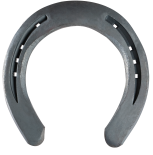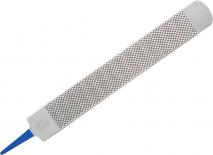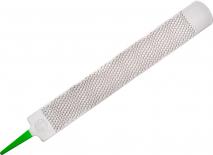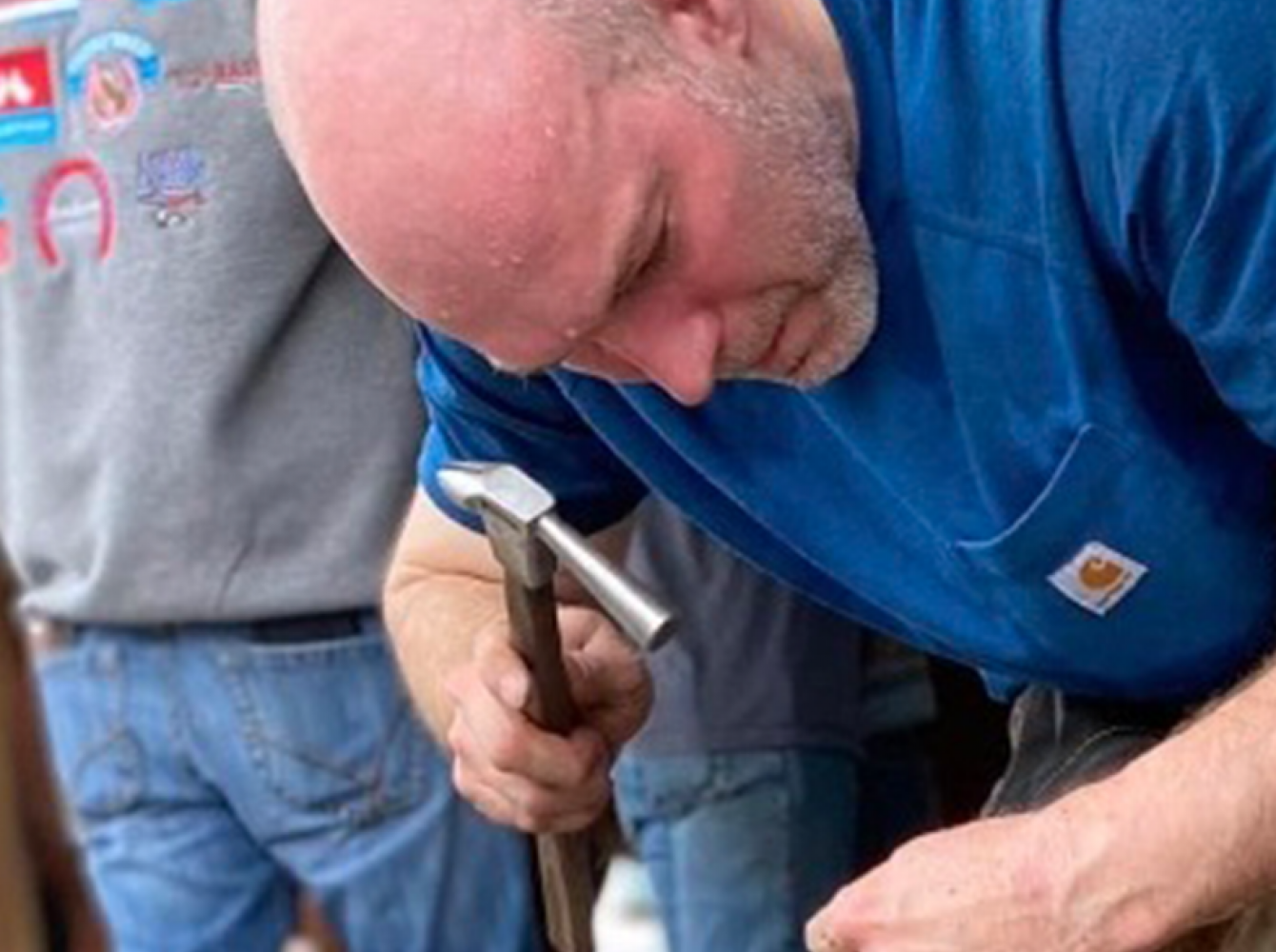
Ryan Stoops, CJF
Ryan’s career underlines a simple truth: when farriers compete, horses win.
Playing To Win
Ryan Stoops has always been a competitor. He came to college as a basketball recruit with hopes to become a math teacher when, unexpectedly, he happened to notice a few students in chaps. Turns out, the school had a strong equestrian program—and when he stopped by the barn to investigate, a chance encounter with farriers would change the trajectory of his life. While somewhat surprising, the work enticed him and looked like something he might want to do.
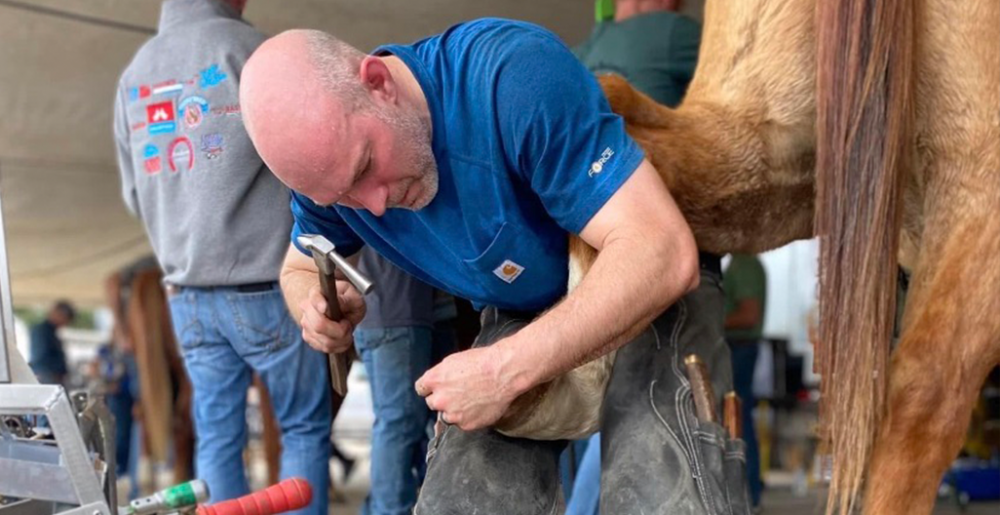
Even though he’d never been around horses—or really animals of any kind—he took to the work immediately. After college, he apprenticed for a year, then attended the Heartland Horseshoeing School in Missouri. When he graduated, he started working with Dennis Hill, father of Jason Hill, the latter being the farrier for Spy Coast Farm. Since Dennis Hill’s apprentices hadn’t all worked out, the older farrier started working with Ryan only one day a week. Soon, Ryan worked himself up to five, and he quickly found that he loved being an apprentice. “It was probably the single most fun I’ve ever had horseshoeing. There are no costs, just labor, and you get to practice.”
Ironically, one of the best decisions Ryan ever made for his hometown business was to move an hour and a half away from it. He found himself in demand. “People think if you’re coming from far away, you must be good.” Fortunately, he was, and the business took off.
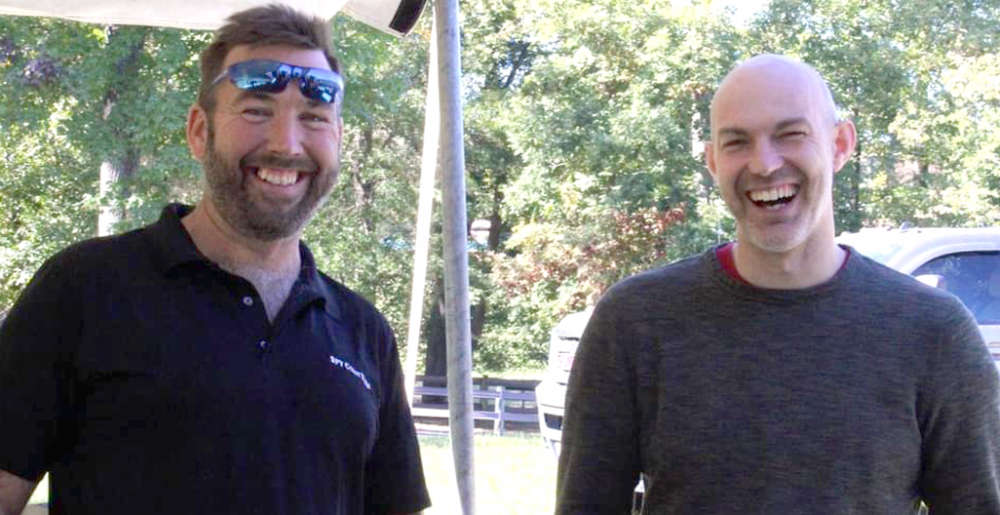
Ryan Stoops and Jason Hill
The Point of Competition Isn’t Competition
Ryan tells the story of how, at a recent clinic, the presenter asked his audience if they felt making horseshoes makes you a better farrier. Ryan’s hand shot up.
He’s long become convinced of the value of competition but his dedication to it started with the prompting from a few friends. Chris and Cody Gregory at Heartland were big into competitions and, when he graduated, Dennis and Jason Hill encouraged him to enter early WCB competitions, which soon became a massive passion for Ryan.
Then he married his wife Debra Stoops; they had two daughters, and he took a break from all the traveling. To keep his skills honed, Ryan did something unexpected and also labor intensive. He forged nearly every shoe needed for all the horses in his rotation for eight years straight, maintaining the craftsmanship and momentum needed, in case the call to compete came again. He also took on the role of coach for several girls and boys basketball teams, giving Ryan another outlet for his competitive nature.
And then the call to compete hit again. “Right before Covid, Jason Hill called me up and said, ‘We’re going to Edgewood. You should come.’” Now, he’s back at it, traveling 14 times in 2021 alone, when he was on the WCB Cat 2 team. His return to competition reminded him how much fellow competitors and organizers—like the Trnkas, Craig Christine, Bodie, and Levi —have helped him improve his craft and build his business.
For the former point guard turned basketball coach, the love of competition is clear and drives his approach to farriery. But he knows that trophies and recognition aren’t the ultimate goal. The benefit is in how it affects your daily shoeing. “Competing, hands down, helps your business because you become more efficient. Craig Trnka always says, ‘The thing that will wear you out every day is making a trench to the anvil, going back and forth, back and forth.’”
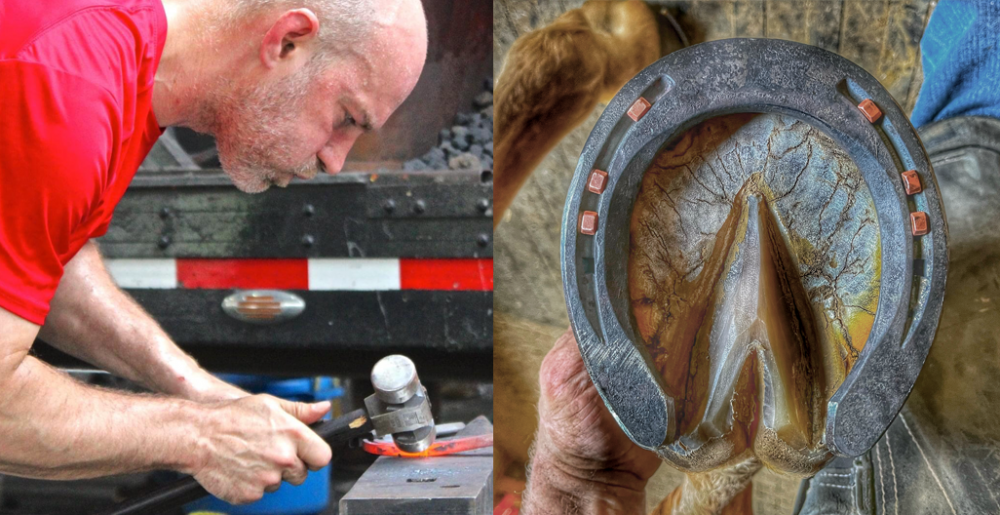
Ryan’s Cat 2 team included Makenzie Dutton, Aaron Lohmann, and Kalem Blessing. “When you have three other sets of eyes on your work, the things that you learn are mind-blowing. If you have an open mind. you’ll get better really fast. We were sending trim pictures weekly; shoe jobs weekly and sometimes daily. Being on this team opened up doors. We got help from Craig Trnka, Mark Milster, Ben Mangan, Tim Mcphee, and Tyler Marshall—some of the best in the industry! I would say to anybody who’s on the fence: get on a horseshoeing team! You’ll learn so much faster than you will on your own.”
“A lot of guys will say, ‘I can just buy whatever I need.’ And there’s something to that. Companies like Mustad have gotten so good at making a usable product, it’s not like it used to be where you HAD to have forging skills. But the skills that you gain in competing help you modify or adapt that premade shoe to fit the horse better . . . and THAT’s THE GOAL.”
He adds, “Then, when you walk up to that special case where you have to make a shoe on the spot, and the vet’s standing there, you can do it, because you did it in a contest.”
Products and partnerships
At this point in Ryan’s career, he knows the value of making a shoe but also finding the right product that offers the absolute best solutions to his horses, which is one reason he values his relationship with Mustad Field Rep, Kris Kibbey. “The thing that got me was Kris’s ability to make me feel like my voice mattered. He would always ask, ‘you use a lot of this, what do you like about it? What could we change?’ And he would listen to what I would say.”
“I’ve always used the Equi-Libriums but he introduced me to Capewell 5 and 5.5 Slimblades. For rasps, Ryan has two preferences, the Heller eXceL Original and the Heller eXceL Legend. “I use the blue tang rasp on the bottom of the foot because it’s so wet where I live and it doesn’t clog. It’s a very aggressive rasp. So I use the green tang on the top.”
“Everybody’s chasing the green tang rasp. 90% of the people at the best contests are using it.”
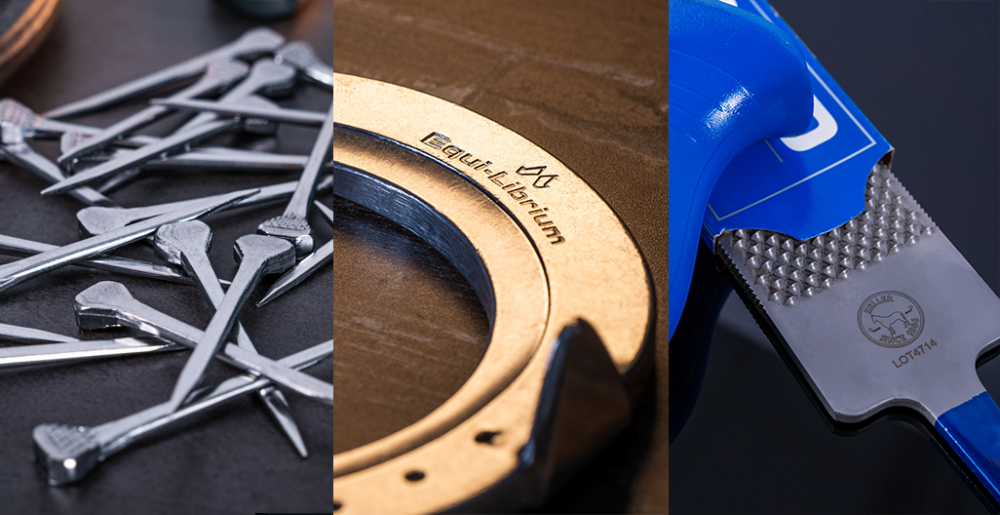
Realistic Advice For Young Farriers
Ryan has great things to say about apprenticeship. In addition to Hill, he credits people such as Dallas Morgan, Bob Slansky, and countless farriers who helped him along the way. His apprenticeship with Hill became something closer to a partnership. “I’d still be working with him if I hadn’t moved.”
He believes this time helped him learn an unforgiving craft. “The horse community is very small and, if you mess up one or two horses, everybody knows.” But he understands that farriers coming out of school today need to pay off some serious debts. He recommends finding a position with a larger, prosperous practice like those offered by farriers Andrew Neilson or Lee Olson.
And as someone who didn’t grow up around animals, he has advice for starting farriers in his position: it isn’t about how long you’ve been around horses. It’s about how you carry yourself around horses.
“Dennis asked me, ‘Are you sure you didn’t have animals in your house growing up? You’re so good around the horses. You don’t get them riled up.’ It’s really just about a healthy respect for a fifteen-hundred-pound animal that can kill you. It’s more about your personality. If you’re nervous, the horse knows before you even get up to it. If things get frazzled, you have to be the calm one.”
Ryan didn’t grow up around animals. But with a family that now includes three dogs, a cat, and two horses, a lot of animals are growing up around him.
